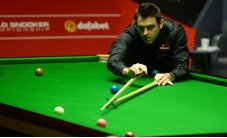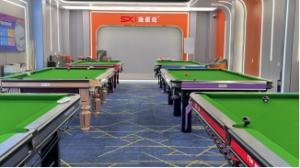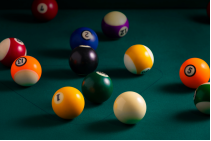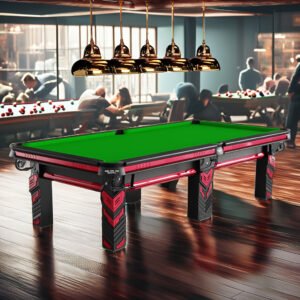Home »
Psychological Game in Front of the Billiard Table: The Invisible Battlefield Behind Victory and Defeat
Tempering of One’s Own Mentality
Billiards is a sport that requires extremely high concentration. Every shot demands that the player be completely focused. In the encounter between Ding Junhui and Joe Mearkins in the 2024 UK Championship, Ding Junhui performed excellently in the early stage but fell into a trough in the middle stage with a long-table attack success rate of less than 30%. But at the most critical moment, relying on his strong self-regulation ability, he delivered a perfect performance with a break of 135 points in a single shot and showed extraordinary psychological quality in the decisive game to complete a desperate counterattack. Various situations in the game, such as mistakes and missed opportunities, can all affect the player’s emotions. At this time, one needs to have strong emotional management ability just like Ding Junhui. Through relaxation techniques such as deep breathing and meditation, one can eliminate external interference and internal distractions, quickly recover from mistakes, and maintain focus to make accurate shots. Self-confidence is also a key factor influencing a player’s performance. Confident players believe in their own abilities and dare to make bold decisions at critical moments. On the contrary, players lacking confidence are prone to hesitation, leading to mistakes. Players can accumulate successful experiences through repeated daily practice, gradually build trust in their own techniques, and thus demonstrate strong self-confidence in the game.

The Art of Observing the Opponent
On the billiard table, observing the opponent is an important part of the psychological game. Players need to constantly pay attention to details such as the opponent’s expressions, movements, and shot rhythm. If the opponent’s movements are stiff and the expression is tense when hitting the ball, it may indicate that their state of mind is unstable. At this time, our side should seize the opportunity, attack resolutely, and further apply pressure. Conversely, if the opponent appears overly relaxed and shows signs of slackness, our side can try to change the rhythm to disrupt their state. For example, when the opponent is used to hitting the ball quickly, deliberately slow down the rhythm to interfere with their shot rhythm, making it difficult for them to maintain their original state. The strategies of “psychological warfare” in the game are equally crucial. Some players will influence the opponent’s psychology through words or behaviors during the game. For instance, when the opponent is hitting the ball, inadvertently make a sound or perform some small actions in an attempt to distract their attention; or at critical moments, show strong self-confidence through expressions and body language to put psychological pressure on the opponent. However, when using such psychological warfare, one must grasp the appropriate measure. Otherwise, it may have the opposite effect, arouse the opponent’s resentment, and even violate the game rules.
The Wisdom of Rhythm Control
The control of the game rhythm occupies an important position in the psychological game of billiards. Different players have different preferences for the game rhythm. Some like a fast rhythm and pursue a quick victory; while others are more adapted to a slow rhythm and focus on the precise calculation of each shot. Understanding the opponent’s rhythm preference and skillfully using rhythm changes can gain the initiative in the game. When the opponent is accustomed to a fast rhythm, our side can appropriately slow down the rhythm to disrupt theirs, making it difficult for the opponent to adapt and increasing the probability of their mistakes. Conversely, if the opponent’s rhythm is slow, our side can speed up the rhythm at an appropriate time, making them unable to think in time and lose their composure. Making reasonable use of the timeouts in the game is also an effective means of controlling the rhythm. When the situation is unfavorable or one’s own state is not good, by applying for a timeout, one can give oneself time to adjust the state of mind and replan the tactics, and at the same time, it can also disrupt the opponent’s offensive rhythm. When the opponent is in great form, a timely timeout may also interrupt their momentum of continuous scoring and weaken their imposing manner. The psychological game in front of the billiard table is a complex and subtle process, involving multiple aspects such as the adjustment of one’s own state of mind, the observation and interference of the opponent, and the control of the game rhythm. Only those players who can gain the upper hand in the psychological game and transform the psychological advantage into actual game performance can stand out in the sport of billiards and enjoy the glory of victory. Spike billiard tables benchmark international standards and achieve a professional competition feel, providing a fair competitive stage for the vast number of billiards enthusiasts. Sold directly by the source factory, the quality is guaranteed. Without middlemen, the price is more favorable. It goes directly from the factory to your hands. Come and make a purchase to start a high-quality





